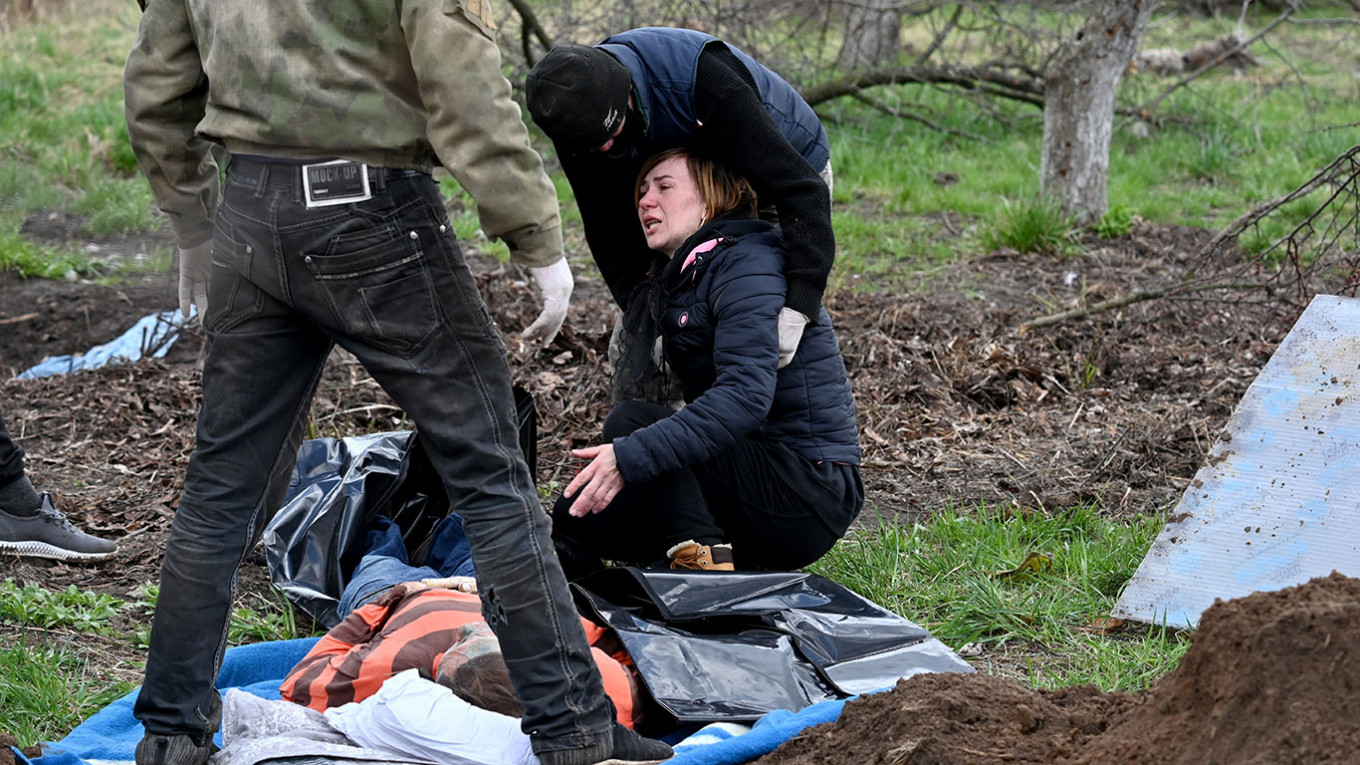The mass torture and killings carried out by Russian forces in Bucha, Irpin, Borodyanka and other Ukrainian towns add a new level of horror to a terrible war. But they are not only a humanitarian disaster: they also change the strategic context in three ways.
First, they will entrench Ukrainian hostility towards Russia, completing the estrangement that began with Russia’s first invasion in 2014 and intensified with the second in February. In less than a decade, Putin has turned a fellow eastern Slavic people that had been well disposed towards Russia, into an object of deep and personal hatred.
Second, they are driving the Russian public into a dark place. Expecting a rapid and easy victory, the state did not try to mobilize mass opinion before the invasion of Ukraine. When it began, many brave people, at known risk to themselves, demonstrated against it, and several public figures and influencers supported them. But the propaganda machine is now working flat out to justify the war and to discredit atrocities as fabrications. Despite severe censorship and repression, Russians still have access to a vastly wider range of information than at any point in the pre-internet Soviet period, if they choose to look for it. Yet most Russians appear to believe official lies over all evidence, even the testimony of their friends and relatives in Ukraine.
This upsets assumptions that a costly conflict would be unpopular. Indeed, many analysts had predicted that Putin would not go to war for this reason. The regime’s concealment of casualties in Syria, and public criticism of the first Chechen war in the mid-1990s, seemed to corroborate this. Instead, most Russians have rallied around a regime and leader that, before the war, had become as unpopular as at any point during the Putin presidency. This is happening even as official rhetoric reaches new levels of hysteria and portrays Ukrainians as a Nazified population whose elites must be "liquidated."
Third, the war crimes show that, as long as Russia occupies Ukrainian territory, an end to fighting does not mean an end to violence. On the contrary: a ceasefire would allow Russian forces not only to regroup and rearm, but to brutalize and murder civilians unhindered. As the "Realist School" of international relations does not appear to recognize, not just geopolitical space but human lives are at stake. All Ukrainians now know for certain what awaits them if Russian forces enter their town or village, and will resist accordingly. It follows that partition or negotiated compromise will bring neither peace nor stability.
Even more than Russia’s invasion, its war crimes mark a fateful moment that fixes perceptions and clarifies choices. The prospect of even a temporary halt to the war, already slim, is now remote. Russia is in many ways more isolated than it was in the Cold War, and the West is now less minded than ever to say "our quarrel is with the government not its people." Further sanctions will follow. If Congress amplifies White House executive orders with legislation, these could last for years. Unless major Western states elect leaders with very different political priorities, it seems virtually unthinkable that sanctions will be eased while Russia occupies Ukrainian territory and Putin remains in power. By hardening public opinion in Finland and Sweden, Russia’s war crimes are also accelerating these countries’ moves towards NATO membership.
Some argue that documenting and investigating war crimes distracts from larger strategic issues. The opposite is true. These crimes have strategic consequences that will shape the course of the war. Above all, they make it more likely that any outcome will be defined not by compromise and settlement, but by victory and defeat.
A Message from The Moscow Times:
Dear readers,
We are facing unprecedented challenges. Russia's Prosecutor General's Office has designated The Moscow Times as an "undesirable" organization, criminalizing our work and putting our staff at risk of prosecution. This follows our earlier unjust labeling as a "foreign agent."
These actions are direct attempts to silence independent journalism in Russia. The authorities claim our work "discredits the decisions of the Russian leadership." We see things differently: we strive to provide accurate, unbiased reporting on Russia.
We, the journalists of The Moscow Times, refuse to be silenced. But to continue our work, we need your help.
Your support, no matter how small, makes a world of difference. If you can, please support us monthly starting from just $2. It's quick to set up, and every contribution makes a significant impact.
By supporting The Moscow Times, you're defending open, independent journalism in the face of repression. Thank you for standing with us.
Remind me later.








